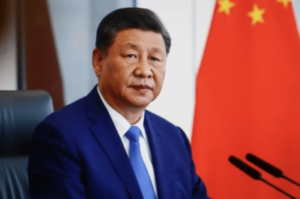$UPS $FDX $HKEX
#HongKong #TradeWar #ChinaEconomy #USTariffs #Geopolitics #CargoIndustry #GlobalTrade #SupplyChain #StockMarket #EconomicImpact #Logistics #Exports
Hong Kong’s cargo sector is facing a new challenge as geopolitical tensions between the United States and China intensify. The city has long served as a critical gateway for trade between mainland China and the rest of the world, benefiting from its strategic location and well-developed logistics infrastructure. However, rising U.S. tariffs on Chinese exports and increased scrutiny over trade practices have put added pressure on Hong Kong’s cargo industry. In particular, major freight and shipping companies such as FedEx ($FDX) and UPS ($UPS) are facing a squeeze as trade volumes fluctuate under the strain of geopolitical disputes. The Hong Kong Stock Exchange ($HKEX), which hosts many logistics and transportation firms, has also been affected, with investor sentiment growing increasingly cautious about the broader implications of trade tensions.
One of the primary concerns is the potential decline in cargo volumes passing through Hong Kong, as companies shift supply chains to avoid new tariff costs. The U.S. tariffs on Chinese goods have already prompted some manufacturers to relocate production to Southeast Asia, inadvertently reducing the flow of exports that traditionally moved through Hong Kong. This has impacted the city’s air and sea freight businesses, which rely heavily on the seamless movement of goods across borders. Trade data in recent months has shown a slowdown in export growth within the region, indicating that businesses are beginning to reroute supply chains to mitigate risks. This shift not only affects the transportation firms that rely on high cargo traffic but also has broader implications for Hong Kong’s GDP, given that trade is a crucial driver of the city’s economy.
Adding to the challenges, increasing regulatory scrutiny by U.S. authorities on trade routes involving Hong Kong has caused further uncertainty. With Washington adopting a tougher stance on Chinese goods passing through Hong Kong to bypass tariffs, businesses are finding it difficult to maintain stable operational strategies. At the same time, the Chinese government has been working on alternative trade routes, potentially sidelining Hong Kong’s role as a critical logistics hub. If Chinese firms continue to circumvent Hong Kong to avoid U.S. scrutiny, the financial and business sectors linked to logistics in the city could suffer longer-term setbacks. Investors in the supply chain and logistics industries are already concerned about potential declines in revenue, as companies reassess their shipping and distribution strategies in light of rising trade barriers.
Despite these challenges, Hong Kong remains a significant transit point for global trade due to its well-established infrastructure and financial services. The government is likely to pursue policy adjustments to maintain its role in the global supply chain, potentially by attracting new trade partnerships or enhancing its logistics capabilities. Moreover, firms involved in e-commerce and high-value cargo shipments may offer some resilience, given the growing demand for direct-to-consumer logistics. However, long-term stability will depend heavily on how trade dynamics between the U.S. and China evolve. If tariffs continue to rise and geopolitical tensions escalate further, Hong Kong’s cargo sector could face prolonged disruptions, impacting not only logistics players but also broader market confidence in the region.











Comments are closed.